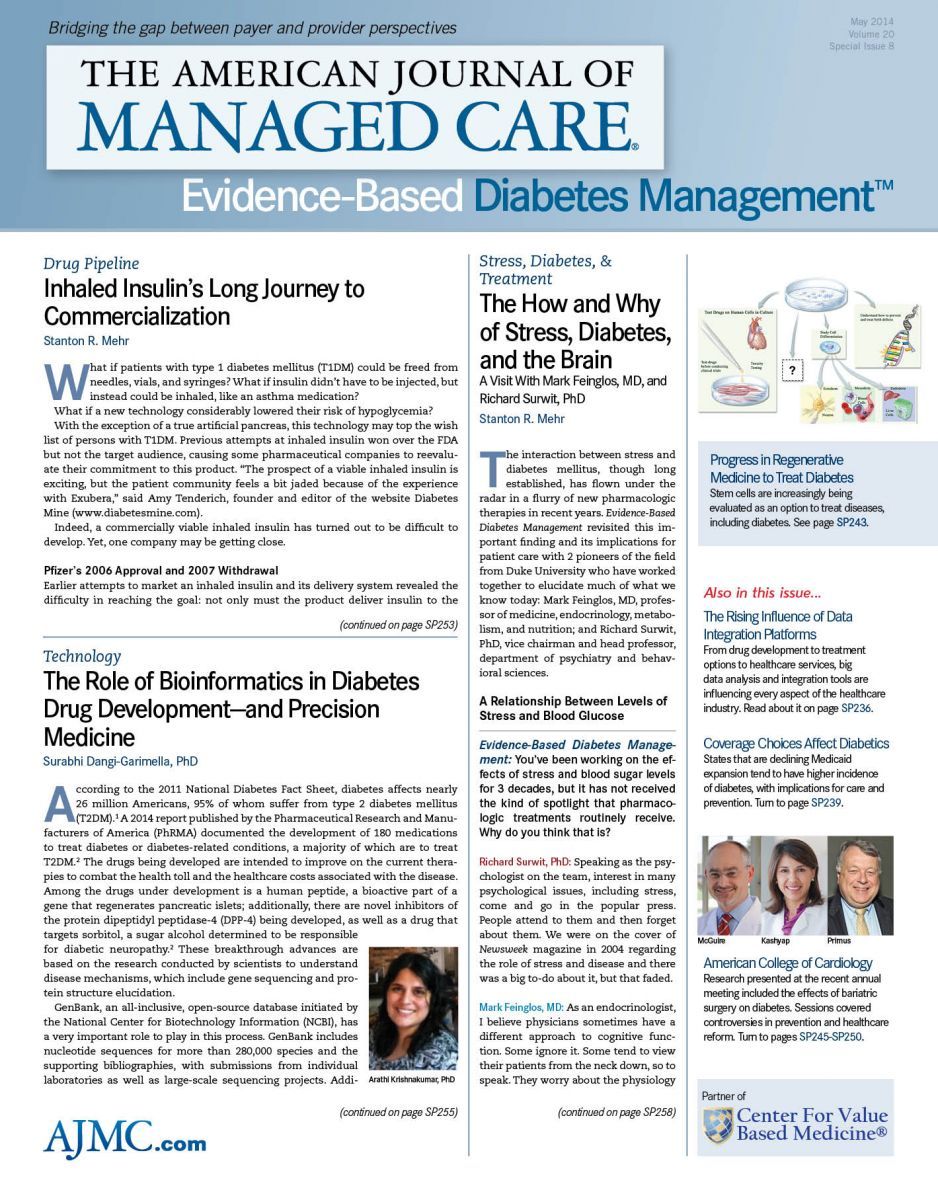- Center on Health Equity & Access
- Clinical
- Health Care Cost
- Health Care Delivery
- Insurance
- Policy
- Technology
- Value-Based Care
Study Answers Long-Standing Question About Metformin After Heart Attack
American College of Cardiology 2014
Metformin, the go-to drug for patients with a diagnosis of type 2 diabetes mellitus (T2DM), may help control glycated hemoglobin (A1C) levels, but according to a new study from the Netherlands, metformin does not help prevent heart failure in patients who have had a heart attack and do not have T2DM.1
The study was presented March 31, 2014, at the final late-breaking session of the 63rd Scientific Sessions of the American College of Cardiology (ACC), held in Washington, DC. It answered a question that some researchers have wondered about, given that some studies have suggested that metformin’s protective effects go beyond its ability to lower glucose levels.
Although the session was jointly sponsored by the ACC and the New England Journal of Medicine, the metformin study was simultaneously published in the Journal of the American Medical Association.1
Lead author and presenter Chris P.H. Lexis, MD, of the University Medical Center Groningen, Netherlands, said the study was designed to find out whether metformin would benefit patients who had suffered a heart attack but who would not be candidates for metformin because they did not have diabetes. Animal studies had shown that metformin preserved the ability of the heart to pump blood through the body after myocardial infarction (MI), which left researchers wondering if the same was true in humans. If so, metformin could be prescribed for patients who have had a heart attack to prevent heart failure after an MI.
In the study, 380 patients who had experienced an MI and had percutaneous coronary intervention (PCI) were randomized to receive either 500 mg of metformin twice daily or placebo, in addition to normal standard of care. Patients who had already received a diagnosis of T2DM or who were coronary bypass candidates were excluded. The median age of patients was 59 years.
The primary end point of the study was left ventricular ejection fraction, a measurement that describes the percentage of blood leaving the heart each time it contracts. This measure is key after MI, which can reduce the left ventricle’s ability to pump blood through the body. The measurement was taken by magnetic resonance imaging, 4 months after each patient’s MI. Results showed that the metformin group’s fraction was 53.1%, compared with 54.8% for the placebo group, which Lexis said was not statistically significant.
EBDM
References
1. Lexis CPH, Iwan CC, van der Horst EL, et al. Effect of metformin on left ventricular function after acute myocardial infarction in patients without diabetes: the GIPS-III randomized clinical trial [published online March 31, 2014]. JAMA.
2. Metformin fails to reduce heart failure after heart attack [press release]. Washington, DC: American College of Cardiology; March 31, 2014. http://acc2014.org/wp-content/uploads/2013/11/LEXIS_GIPSIII_LBCT-NEJM_Press-Release_FINAL.pdf.
Lexis said that while the results will not change clinical practice for patients without diabetes, they do show that metformin is safe for patients who have suffered ST-elevated myocardial infarction, or STEMI. “It is noteworthy that metformin started early after heart attack did not adversely affect kidney function and was well tolerated,” he said. So, our findings do not preclude the use of metformin to treat diabetes in this setting.”2

Telehealth Intervention by Pharmacists Collaboratively Enhances Hypertension Management and Outcomes
January 7th 2026Patient interaction and enhanced support with clinical pharmacists significantly improved pass rates for a measure of controlling blood pressure compared with usual care.
Read More
Exploring Pharmaceutical Innovations, Trust, and Access With CVS Health's CMO
July 11th 2024On this episode of Managed Care Cast, we're talking with the chief medical officer of CVS Health about recent pharmaceutical innovations, patient-provider relationships, and strategies to reduce drug costs.
Listen
Linking Data to Determine Risk for 30-Day Readmissions in Dementia
December 22nd 2025This study found that certain characteristics in linked electronic health record data across episodes of care can help identify patients with Alzheimer disease and related dementias at high risk of 30-day readmissions.
Read More
Performance of 2-Stage Health-Related Social Needs Screening Using Area-Level Measures
December 19th 2025Limiting health-related social needs screening to lower-income areas would reduce screening burdens; however, this study found a 2-stage screening approach based on geography to be suboptimal.
Read More

